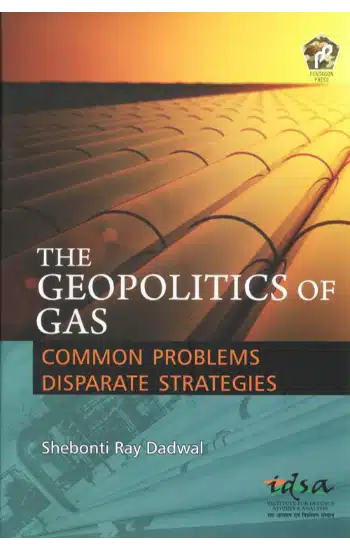THE GEOPOLITICS OF GAS: COMMON PROBLEMS DISPARATE STRATEGIES
Publisher:
| Author:
| Language:
| Format:
Publisher:
Author:
Language:
Format:
₹1,195 ₹896
Save: 25%
In stock
Ships within:
In stock
ISBN:
Page Extent:
With huge supplies, including from unconventional plays, and its low carbon properties as compared to oil and coal and decreasing transport hurdles, natural gas has what it takes to fulfil the escalating demand for energy. Yet, the promise that it held a few years ago as the fastest growing major source of energy appears to be fading, ironically due to abundant supplies. On the one hand, while the risk of recovering producers’ costs for the high capital investments required for production and liquefaction is increasing, on the other, consumers are demanding lower prices in a market that has turned in favour of the buyer. As a result, geopolitics, which was always in play in the energy market, is growing, as gas producing and exporting countries compete for a larger share of the market, or at the very least, retain their existing ones. More importantly, the entry of new supply sources is also pushing the market from the traditional oilindexed pricing mechanism that was prevalent in the European and Asian markets, towards a more flexible mechanism, including a hubbased one. As liquidity in the gas market is increasing, there are also signs that a global market, as against the current regional one, may be emerging.
This volume looks at the evolving gas market and the various players who influence it both as producers and consumers. However, some of the players, such as Australia and the new African producers, as well as Japan and South Korea, the two largest LNG consumers, have not been included as their approach tends to be more commercial than geopolitical in nature.
With huge supplies, including from unconventional plays, and its low carbon properties as compared to oil and coal and decreasing transport hurdles, natural gas has what it takes to fulfil the escalating demand for energy. Yet, the promise that it held a few years ago as the fastest growing major source of energy appears to be fading, ironically due to abundant supplies. On the one hand, while the risk of recovering producers’ costs for the high capital investments required for production and liquefaction is increasing, on the other, consumers are demanding lower prices in a market that has turned in favour of the buyer. As a result, geopolitics, which was always in play in the energy market, is growing, as gas producing and exporting countries compete for a larger share of the market, or at the very least, retain their existing ones. More importantly, the entry of new supply sources is also pushing the market from the traditional oilindexed pricing mechanism that was prevalent in the European and Asian markets, towards a more flexible mechanism, including a hubbased one. As liquidity in the gas market is increasing, there are also signs that a global market, as against the current regional one, may be emerging.
This volume looks at the evolving gas market and the various players who influence it both as producers and consumers. However, some of the players, such as Australia and the new African producers, as well as Japan and South Korea, the two largest LNG consumers, have not been included as their approach tends to be more commercial than geopolitical in nature.
About Author
Reviews
There are no reviews yet.
Related products
RELATED PRODUCTS
Arjun Subramaniam (Set of 2 War Books)
Save: 25%
Air Power and the Strategic Balance: The Indian Ocean and Bay of Bengal
Save: 30%
India and The UN Peace Operations: In Service of Humanity and Global Peace
Save: 30%
Pentagon’s South Asia Defence and Strategic Year Book 2010
Save: 25%
Pentagon’s South Asia Defence and Strategic Year Book2012
Save: 25%
Professional Military Education: Making of the 21st Century Warrior
Save: 30%
Study and Practice of MILITARY LAW(9th Revised Edition 2024)
Save: 25%




Reviews
There are no reviews yet.